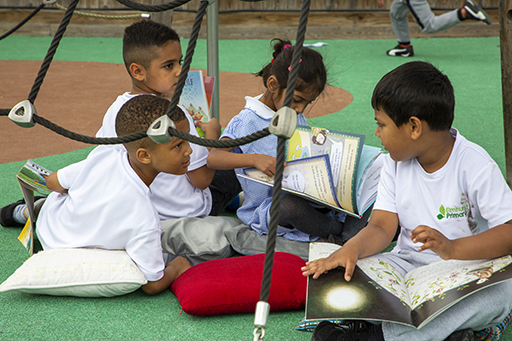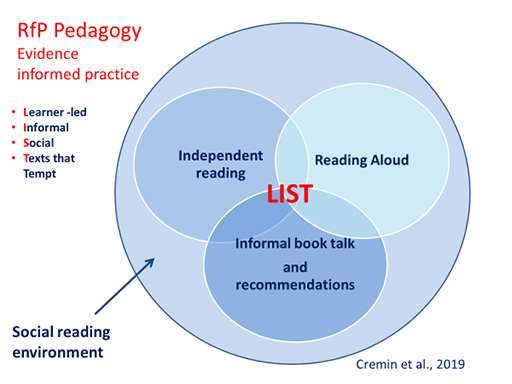6.4 Building communities of engaged readers
As a Reading Teacher, you understand the nature of reading, are aware of your own and your children’s reader identities and are continually extending your knowledge of children’s texts. A key piece of the jigsaw, then, is to employ this knowledge and understanding in your pedagogies and practices in the classroom.

In Session 5, you read about the evidence-based Reading for Pleasure pedagogy developed through the Teachers as Readers Research project (Cremin et al., 2014), which encompasses reading aloud, reading time, book talk and recommendations in a highly social reading environment. These four strands are interdependent and are underpinned by the principles that Reading for Pleasure is Learner-led, Informal, Social and with Texts that tempt; as a Reading Teacher your professional skills and perception are essential.
What you do in the classroom matters and makes a difference. However, building communities of readers that include children, parents, all staff and other community members creates a ripple effect and fosters a culture and ethos of reading in the school and wider community. Reading Teachers play a vital role in building social and reciprocal reading communities in which everyone is valued as a reader, regardless of ability, text preferences or the language they choose to read in.
Promoting a more expansive and shared understanding of what it means to be a reader in the 21st century, deconstructing hierarchies of text types and dismantling ability-based views of readers is undoubtedly a challenge in many educational systems. Yet, there is a progressive Reading for Pleasure community growing worldwide, working to ensure all children have the opportunity to become motivated and engaged childhood readers.
We invite you to join us.

